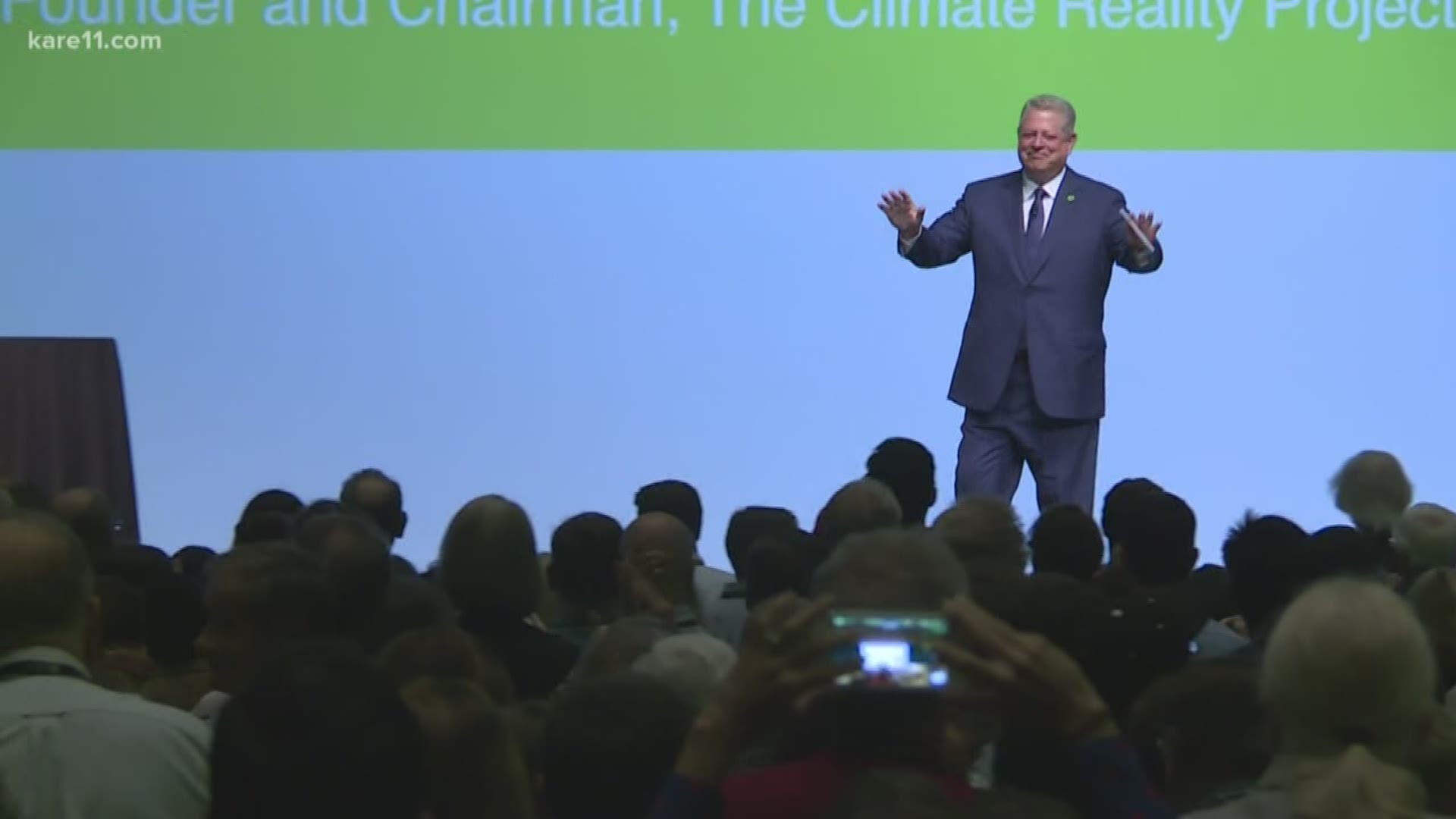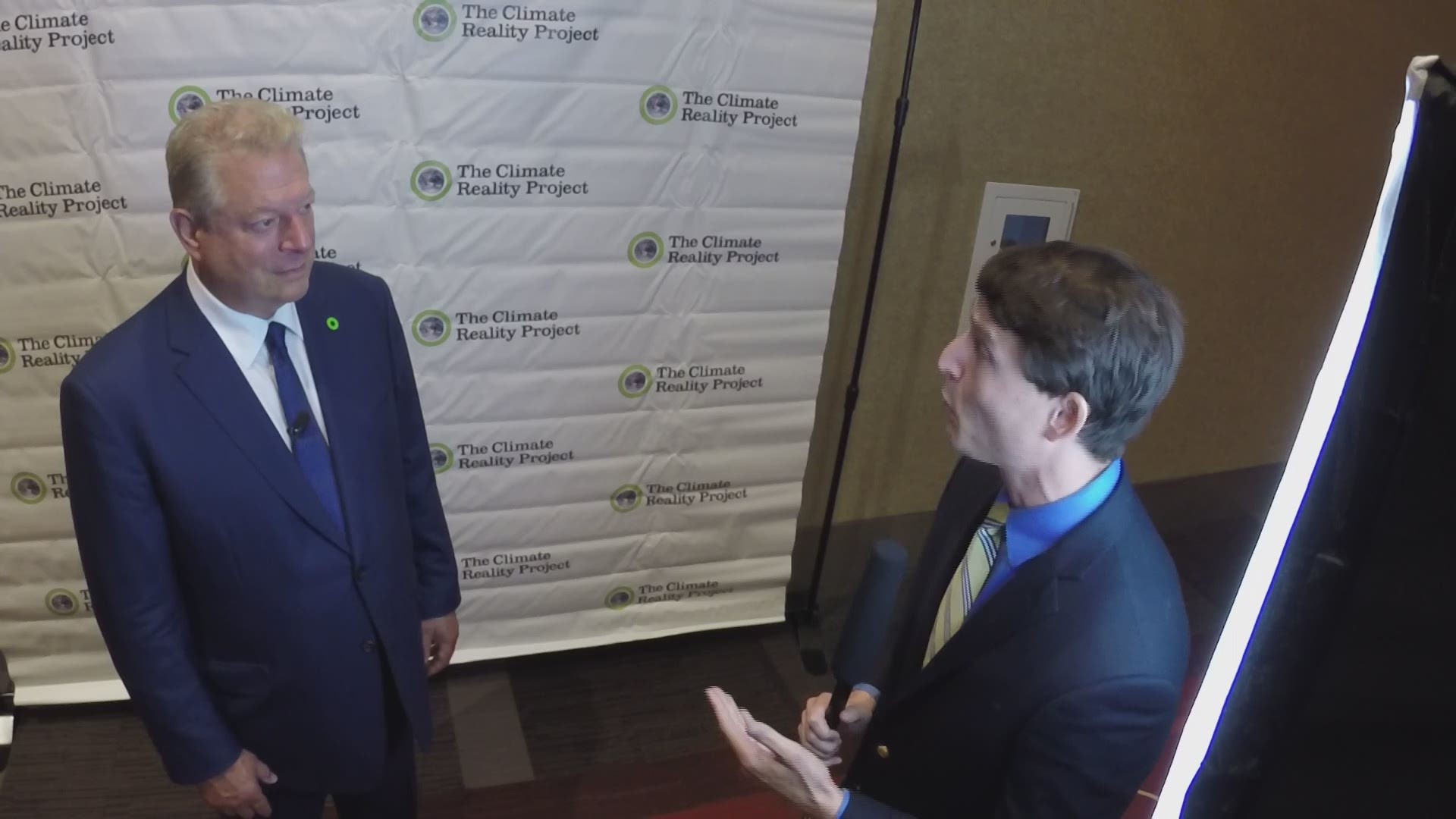Former Vice President Al Gore is spending his weekend in downtown Minneapolis, where he's leading the Climate Reality Leadership Corps Minneapolis-St. Paul Training.
KARE 11's Danny Spewak caught up with him in a one-on-one interview, where they discussed the Line 3 oil pipeline, the Green New Deal and the interaction between federal policy and local climate action plans.
Here's a transcript of the conversation:
Q: Mr. Gore, Minneapolis and St. Paul both have pretty detailed climate plans, but the mayor of Minneapolis has asked for more federal funding, more federal investment. What should the federal government's role be in funding cities' fight against climate change?
A: It should be the top priority, and the federal government should stop subsidizing the dirty fossil fuels they're spending so much money on now. Let the market make some of these decisions without the government putting their thumb on the scales in favor of fossil fuels. And the government should be helping cities. Minneapolis and St. Paul, and many other communities in Minnesota, are actually playing an important leadership role.
Q: With the debates underway, we hear a lot about the Green New Deal. Minnesota's Senator Amy Klobuchar calls it aspirational (Sen. Klobuchar later came out in support of the Green New Deal this summer). Do you support the Green New Deal?
A: "I support it because it's an aspirational goal, and I see it in many ways similar to what the old nuclear freeze was years ago. I used to work on arms control, and it was criticized as overly idealistic, but it led to a situation where Ronald Reagan and Mikhail Gorbachev could have an arms control breakthrough. And I think the Green New Deal is a little like that. Some of the details you can argue about, but the basic thrust of it is correct: This is all hands on deck and I like the New Deal part of it because the jobs in solar and wind and electric vehicles and batteries and building retrofits, this is where a lot of people can be put to work. Solar installer is the fastest-growing job in the country. Second-fastest is wind turbine technician. We can make the air and water cleaner, create more jobs, economic progress and save our future at the same time. What's not to like?
Q: Huge issue here in Minnesota related to climate change is the Line 3 pipeline -- there were some protesters with the governor today -- do you feel the state has handled that situation adequately?
A: I'm not a citizen of Minnesota, not a voter here, so I don't think I should claim the expertise on analyzing how different parts of the state are handling it. I will tell you, I'm opposed to Line 3. I see it in the larger context of this massive investment in new pipeline infrastructure all over the country at a moment when the cost of solar and wind is coming down so dramatically. Some of these companies are desperately trying to get their ratepayers to try to subsidize the building with new infrastructure so they can rely on it in the future, when they may not be competitive otherwise. So I am against that pipeline and I'm for a shift to renewable energy.
Q: Tell me the specific threat from climate change here in the Midwest and Minnesota specifically.
A: We're seeing a number of threats, with the increasing temperatures you're getting a loss of snow and ice cover which amplifies the temperature increase. You're seeing a huge increase in tick-born diseases and mosquito-born diseases, you're seeing damaging consequences for agriculture... you're seeing these big downpours, these rain bombs, that are one of the signature characteristics of the climate crisis and, ironically, also more drought which has a particular impact on farmers as well.


